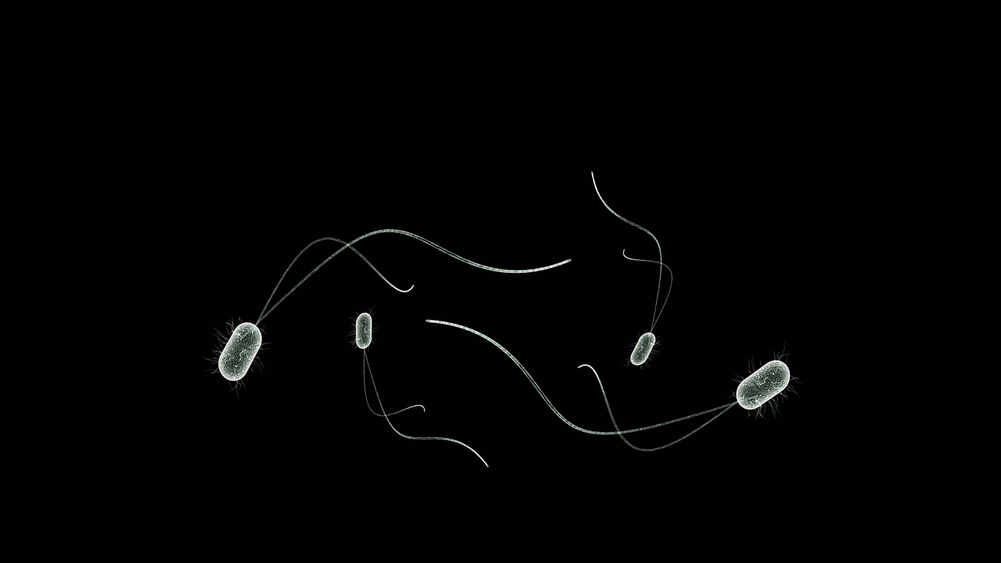Most people who have been to Korean restaurants will be familiar with a signature Korean dish called Kimchi. This traditional dish has been consumed for thousands of years and is made from a mixture of Chinese cabbage, herbs and spices which is then fermented by naturally occurring lactic acid bacteria. Apart from giving kimchi its distinctive taste, it turns out that these probiotic bacteria might also be good for our health. Studies have shown that the bacteria could be contributing to the anti-cancer, anti-obesity and anti-aging properties associated with kimchi consumption.
Now, a new study from Korean researchers based at the World Institute of Kimchi suggests that Kimchi-associated bacteria might also be useful for treating chronic skin diseases. Eczema or atopic dermatitis (AD) is a painful skin condition that mainly affects young children and causes their skin to become dry, red and itchy. Patients suffering from AD can also develop flaky skin that becomes more susceptible to bacterial infections.
Why patients develop the disease is still not completely understood. But, it is thought to be due to high levels of inflammation caused by an increased number of immune cells that make and release inflammation-inducing molecules. The severity of this inflammation can be influenced by various factors ranging from an individual’s genes to the composition of their gut microbiome – the community of bacteria that is present in the gut.
Treatment of AD can involve the use of steroids to reduce inflammation but recent studies have shown that probiotics might be a promising alternative treatment. Based on these studies, Choi and other researchers from the institute wanted to determine whether probiotics from Kimchi could also be used to treat AD.
The team started with a batch of home-made Kimchi and tried to isolate and cultivate probiotic bacteria using a specialized growth medium. Using this method, the team successfully identified a new strain of probiotic bacteria which they called Lactobacillus sakei WiKiM30. They then fed WiKiM30 to mice that were suffering from AD-like symptoms. The team found that mice that had been fed the bacteria showed significantly less redness, swelling and dryness in their skin compared to mice that were not fed the bacteria.
The team also found that mice which had eaten the bacteria also had fewer inflammation-causing immune cells and also a reduction in the level of inflammatory molecules in their blood. These results led the team to conclude that WiKiM30 could help reduce AD-symptoms by regulating the immune system to reduce inflammation.
Apart from controlling the immune system directly, the team wanted to see if WiKiM30 could also be treating the symptoms of AD through other indirect effects. Previous studies have suggested that the composition of the gut microbiome might be associated with certain diseases such as AD. The team wanted to, therefore, test whether WiKiM30 could be influencing the gut bacteria species composition in the AD mice.
The team analysed the faeces of mice fed with WiKiM30 to identify the species and quantify their abundance. They found two interesting discoveries – higher levels of a beneficial bacteria called Ruminococcus in WiKiM30-fed mice and lower levels of bacteria that are frequently associated with AD (such as Arthromitus and Ralstonia). These results are significant because they suggest that the anti-inflammatory effects on the AD mice could come from both direct effects on the immune system and indirect effects on the microbiome.
While the results are promising, the researchers state that more work needs to be done to understand how exactly WiKiM30 is controlling inflammation and influencing the gut microbiome. Further research will also be needed to determine if these findings can be extended to reduce AD-symptoms in humans. If confirmed, this kimchi-derived probiotic might be a key weapon in helping to combat the disease in the future.
Paper Reference:
Kwon M-S, Lim SK, Jang J-Y, Lee J, Park HK, Kim N, Yun M, Shin M-Y, Jo HE, Oh YJ, Roh SW and Choi H-J (2018) Lactobacillus sakei WIKIM30 Ameliorates Atopic Dermatitis-Like Skin Lesions by Inducing Regulatory T Cells and Altering Gut Microbiota Structure in Mice. Front. Immunol. 9: 1905. doi: 10.3389/fimmu.2018.01905
by Andrew Liew, PhD











